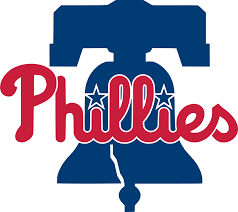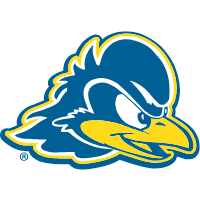It had been years since I watched baseball from the stadium. My town has minor league baseball, the A-division for starting players, some of whom have progressed to MLB. Not been there in a while, but always entertained when I went there. Free parking, manageable crowds, and with just a few thousand seats, everyone gets to sit close to the field. And they involve the community, picking out a few spectators, usually kids, to go onto the field for a small contest. And batted balls can really come pretty close with a few homers reaching the parking lot.
Major league baseball was a springtime enjoyment when I was in my 20s. I could walk to the stadium but after dark take the bus home for safety. I would sit in the Grandstand for $1.50 with the other university students who rooted for their own hometown visiting teams while local people glared at us from their more costly places.
And then my outings lapsed. I had taken my son to a major league game one time at a stadium that no longer exists, being replaced by a more state-of-the-art facility, as was the one from my student days.
As a platelet donor inducement, they asked if I wanted tickets to a game where the team would promote the blood bank. I would be out of town for the game closest to me but I accepted two tickets to Camden Yards about 75 miles south on I-95. Players make a lot more money now, subsidized by big TV contracts. Tickets no longer cost $1.50, though to my surprise Camden Yards still has bleachers beyond right field. And now a few days after the game, the experience of being there has changed considerably.
Camden Yards sits just off downtown Baltimore, a rather grimy city that has seen better days. Apparently a Convention Center attracts enough mid-sized conferences to justify a few luxury hotels adjacent to the stadium. Its other neighbor is the U of Maryland Medical Center, anchored by a staid old building. And the Inner Harbor, Fort McHenry, Babe Ruth House attract tourists coming for a day or two, or perhaps conventioneers wanting some sightseeing. While getting there guided by GPS went easily, the stadium attracted a massive number of cars, something difficult for a cramped downtown to handle. While I could see open parking spaces on lots as I passed by, and fans an hour early teeming by to see the game clad in their Orioles regalia, getting to those lots was not obvious. I followed everyone else, never finding the driveway or side street. But the hotels and medical center had garages. Experienced fans, perhaps season ticket holders, parked closer, but I eventually paid the $30 for an evening in the medical center garage, employees parked on the lower level, fans on the higher tiers. The walk to the stadium. still the daylight of a summer afternoon, was neither elegant nor squalid. There was no appreciable litter, no aggressive motorists despite the heavy density of cars, and a mostly downslope stroll to the stadium. Orange shirts with Orioles patterns and O's hats prevailed. Mine was neither.
We made it easily to the entrance, past a scalper, to the security gate. The Orioles have a lengthy list of what must be left outside. Whether or not Maryland is an open carry state, it probably isn't, no weapons can come inside. I had left my pocket knife in the car. Nothing that makes serious noise, no foghorns. I suppose they'll look the other way for a Purim grogger. My pockets set off the metal detector, emptied to reveal my coins, keys and phone to the satisfaction of the attendant. Our tickets were paper, most were screenshots on phones.
We had no idea how to find our seats. Orioles in season is a big industry. We walked along on the bleacher side of the sidewalk. Stores selling Oriole logo stuff on our left, massive restrooms and concessions to buy stuff to eat on the right. The signs indicated sections with numbers under 100. Ours was 364. My wife and I followed people past the gate into the enclosed area. Food concessions everywhere with somewhat excessively price beer, mass market and craft, burgers, pizza, hot dogs, chicken. And more places to get another O's T-shirt. We figured our seat must be on the opposite side of the stadium so we headed in that direction. Finally, somebody there to serve people rather than sell them stuff, a first aid station. We asked the attendant how to get to our section. It would require an elevator ride to the uppermost level. She gave us general directions to the elevators, of which there were only two. An attendant across from them gave us more specific directions to finding our assigned seats. The elevator cars themselves were massive. They also had an elevator operator managing the switches, something I'd not seen anywhere since staying at a rather snooty hotel for a convention in DC in the 1990s. We arrived, followed signs to our section, where we found an usher to point to our seats. He did not have the stamina to escort everyone, as our seats were in the penultimate row, a steep ascent for seniors. But they afforded a perfect view of the skyline and of the field. We could see the many electronic displays that rim the stadium, though a little far to read everything easily with my bifocals. We were far enough from the field to see the whole thing from about the midpoint of the third base foul line. No distortion at all when trying to discern team strategy.
Even though we occupied the top deck, there were still vendor stalls right outside the seating area. What we did not have were vendors hawking soda, peanuts, more beer, and hot dogs. My own college yearbook was dedicated to that lovely man who would sell hot dogs as he wandered the bleachers at our college football games. In some ways the face of my Alma Mater. Camden Yards opted for decorum. People brought cheeseburgers and soft-serve ice cream to their seats. They threw nothing on the floor to be swept by college kids needing a few bucks after the game.
The Blood Bank representation got the high seats. A few messages of donor and organizational appreciation appeared. The National Anthem was sung by a mezzo, African-American lady with a stellar voice who returned at the seventh inning stretch for a patriotic encore. Everyone stood, caps off, no protests. Did not see any MAGA hats or other visible political statements the entire evening.
I found the many screens that circled the field, from scoreboards to replays to dazzling orange pleas for those in attendance to Make Noise a bit distracting. I could see the entire field. If balls came toward my direction on the third base side, I could see the ball. Pitching speeds are now about 95 mph very consistently with all pitchers. I could not see the ball moving from the mound to the plate, not sure the batters could see it to their satisfaction either, and I wonder about the accuracy of umpire judgment as a sphere moves across the plate that fast. But for the whole game, only one disputed call, resolved in the O's favor by instant replay.
The O's got their come from behind, one run win in the end. A lot of people exited at the same time but it remained orderly. Sidewalks, elevators, stadium exits, and parking garage exits were all packed with people. Despite this, the drivers all seemed courteous, pedestrians waited their turn at the lights and at elevators. A couple of homeless people, or maybe just professional panhandlers with a place to sleep when the crowds dissipated, tried to get their needed income, though none aggressive. Very little police presence.
In our current America, one in which the majorities people elect to represent them generate hostility as their motivator, for about four hours the people who took the evening to root for the O's got a break from that. We all cheered with the orange lights on the scoreboard said to cheer. We left the contraband in our cars. We didn't shove each other to get a hot dog more quickly or get the last spot on the elevator. We had a good time. We were nice to each other. We had a common purpose. If only for a short time in a confined location, but at least still possible.









